How much does a house extension cost in 2024?
The prices in this guide are accurate as of 2024*

A home extension can add value to your home. It will also give you more space, so whether you’re looking to add a bedroom, or make your living room bigger, there are plenty of good reasons to extend your property.
Prices rise the more south you live in the UK, with London having the most expensive rates. The scope of your project will also influence how much you end up spending, alongside a range of other factors, like whether you want a single-storey extension or a conservatory.
You will also need to think about labour prices and the cost of materials. Keep in mind that the prices in this guide include VAT.
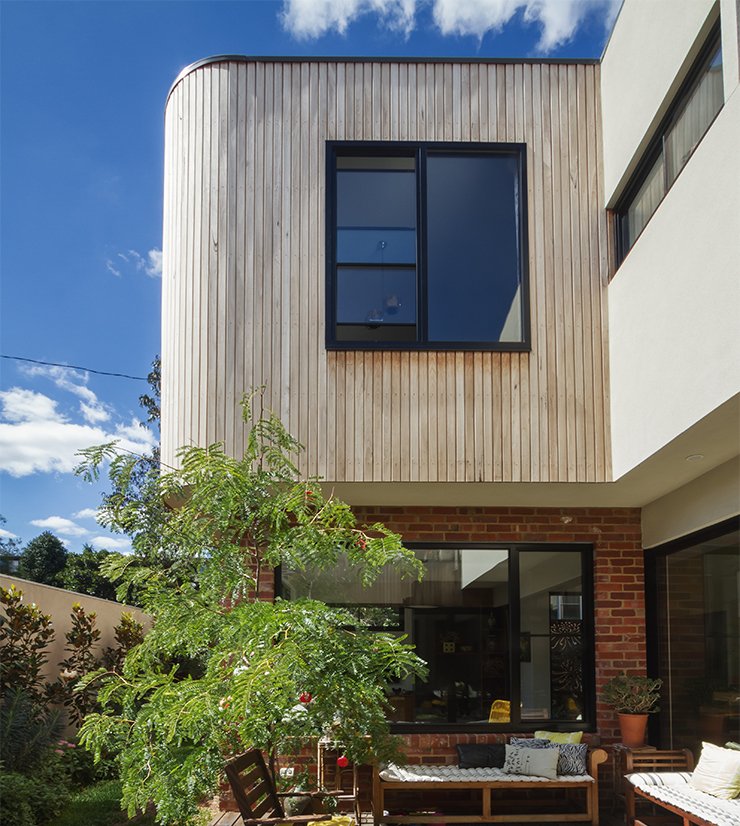
Five reasons to get a home extension:
- A home extension can add value to your house. A standard extension can raise the price of your home by up to £20,000, whilst a conservatory can add £13,000, an annex £17,000, and an en-suite over £11,000 to your property.
- Whether your family is growing, or you’re looking to create a bigger kitchen, most people get a home extension because they need more space and want their home to accommodate this.
- You’re working from home more than you used to and want your home to be equipped for this purpose. Home offices are incredibly popular, and can increase the value of your home by over £11,000.
- Home extensions help you make the most of the space you have, allowing you to redesign and reorganise the layout of your house to use your space better.
- If you don’t want to move, because you love your home, you could opt for a home extension instead, adapting the house you already own rather than looking to buy a new one.
What is the average cost of a home extension?
| Home extension type | Average cost |
| Single-storey extension | £45,000 – £75,000 |
| Double-storey extension | £73,800 – £142,350 |
| Side extension | £60,250 – £73,200 |
| Rear extension | £50,800 – £80,700 |
| Wrap-around extension | £63,000 – £106,600 |
| Conservatory | £30,000 – £40,000 |
| Garden room | £8,000 – £27,500 |
| Prefab extension | £45,000 – £55,000 |
| Basement extension | £120,000 – £160,000 |
A home extension is an excellent investment. But how much should you pay to get one done? The below cost guide breaks down all the different kinds of extensions you can get, and their price ranges, according to size and quality of materials.
Single-storey extension cost
A single-storey home extension can cost you from as little as £45,000 to upwards of £75,000. The average single-storey extension costs £60,000.
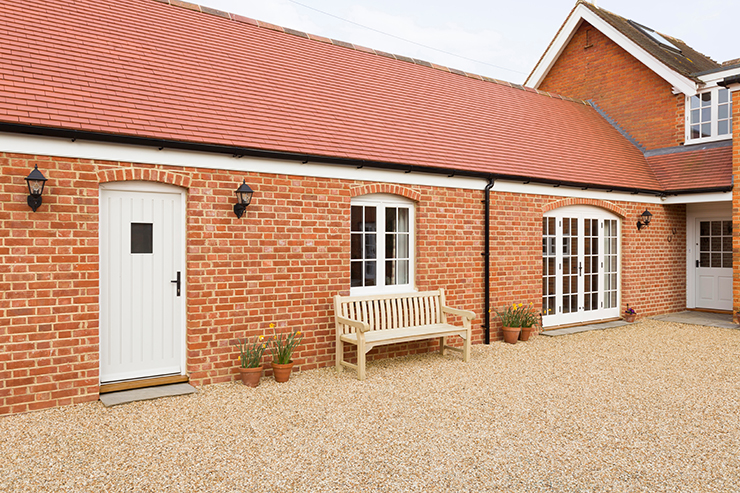
There are plenty of things you can do with a single-storey extension. For instance, with the rise of remote working, you could be looking to build a new office. Or, you might be tired of cooking in a tiny kitchen and want a bigger, open plan kitchen space.
Whatever your reason for wanting more room, you don’t need to move house to get it. A home extension is more cost-effective, and lets you revolutionise the downstairs space of your home for whatever purpose you have in mind.
Cost of a small, single-storey extension:
If you’re only looking to get a small extension done, (3m x 5m), then a standard extension made of brick and with a flat roof will cost you around £45,000.
Cost of a medium, single-storey extension:
An average, medium-sized single-storey extension (4m x 6m) will cost you around £60,000 for a brick extension with a flat roof. This accounts for good quality materials and the cost of labour.
Cost of a large, single-storey extension:
A large, single-storey extension (6m x 8m) made of brick and with a flat roof will cost you around £75,000.
The above costs include VAT.
An average single-storey extension will take roughly 12-14 weeks to complete, depending on the size of the project, and external factors such as weather and delays in getting materials.
These prices account for the intricacies of the build and the quality of materials, as well as the actual cost of having it installed (think the likes of building walls, fitting plasterboard and installing plumbing).
Close section ↑Double-storey extension cost
On average, a standard 60m2 double-storey extension will cost you £111,100. Smaller extensions (30m2) with cheaper materials can cost as little as £73,800, whilst premium quality materials and installation for a large extension (100m2) can reach £142,350, or even more. It all depends on size.
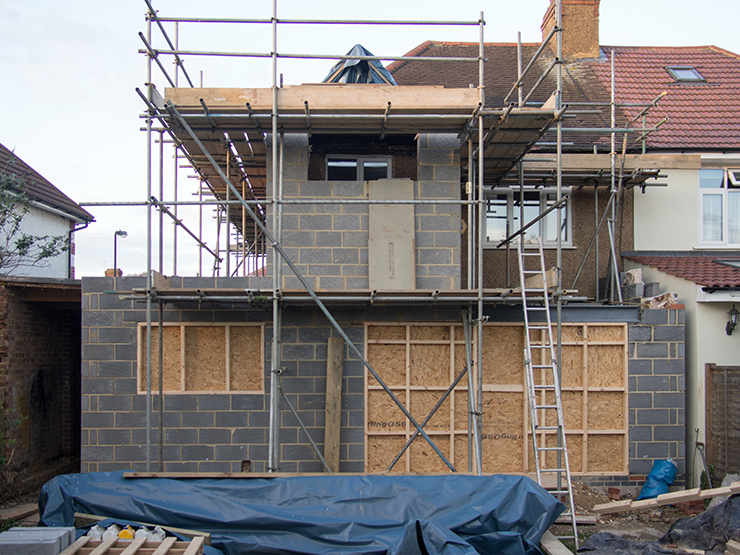
A two-storey extension will of course cost you more than a single-storey extension, but if you are thinking about getting one, there are plenty of benefits to doing so. This is because a double-storey extension is a really cost-effective way of maximising the space in your house, but in a way that doesn’t steal room from your garden.
They’re also quite easy to install in most detached and semi-detached houses. So if you desperately need space, but don’t want to move homes, then a double-storey extension might be the best fit for you.
To build one, additional costs need to be factored in for scaffolding, structural integration, and changes to the roof.
Cost of a two-storey extension in 2022
On average, a 60m2 (medium sized) double-storey extension will cost you £111,100. If you are looking to get a smaller double-storey extension fitted, such as a 30m2 room, then costs can total up to around £73,800. For bigger double-storey extensions, such as for spaces of around 100m2, you’ll need to budget around £142,350.
You should factor in between nine and 14 weeks to complete a double-storey extension, depending on the scope of the project. Double-storey extensions are considered the best value-for-money extension you can buy.
How much you spend will depend on where you live in the UK, as well as your choice of materials. The above quotes are for a brick extension with a pitched roof and 3 metre bifold doors.
Close section ↑Side extension
The average cost of a side extension is between £60,250 and £73,200.
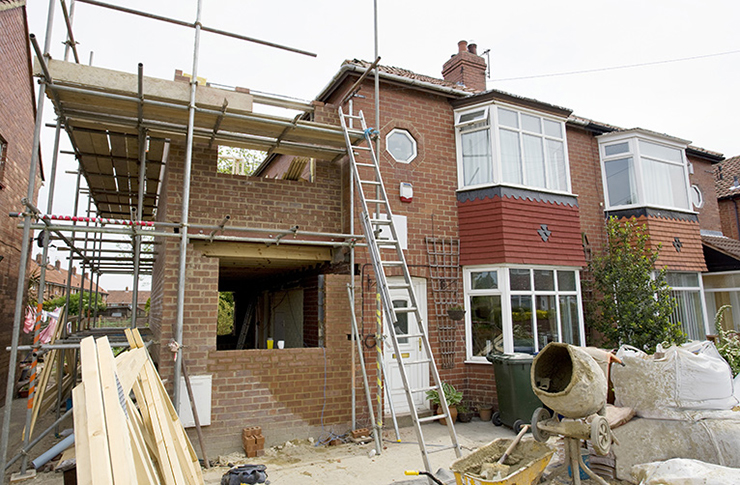
In most cases, side extensions tend to be quite small, though it depends entirely on how much free space you have to the sides of your house. People like them because they don’t take up garden space, and introduce a lot more natural light.
Side extensions also improve the accessibility of your property, as they often have a door connecting to your outside space. A side extension can be single-storey or double-storey, depending on your budget and preferences.
However, they don’t usually add that much space, as they tend to be quite small in comparison to the other extensions on this list, so do keep this in mind.
To find out how much a side extension could cost you, let us know about your project for a free quote.
Otherwise, take a look below at some average prices for side extensions in the UK.
| Size of extension (metres squared) | Average cost |
| Small (20m2) | £60,250 |
| Medium (25m2) | £65,000 |
| Large (35m2) | £73,200 |
Keep in mind that, as with all these prices, costs tend to go up if you live in London or the South East, often by up to 20% more on average.
How much you spend will depend on the specific requirements of your project. For example, the above prices include a brick side extension with a flat roof and 3 metre bifold doors, as well as a knock through to the main house, steel beams and a 2m x 1m roof lantern. They don’t include the installation of a floor finish or supplies for kitchen or bathroom materials.
Side extension design ideas
Why not…

Build a cosy reading nook to relax and escape the outside world?
With a few bookshelves, a comfy chair or sofa, and some plant pots, you could DIY the perfect reading spot.
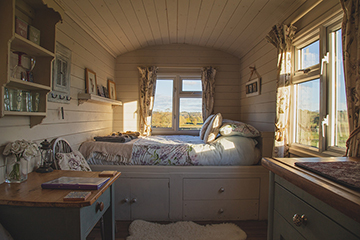
Build a small, guest bedroom for when friends or family stay over?
Away from the main family bedrooms, a side extension guest bedroom is the perfect place to host a guest.
Rear extension cost
A rear extension will cost you roughly £61,100 to buy and install.
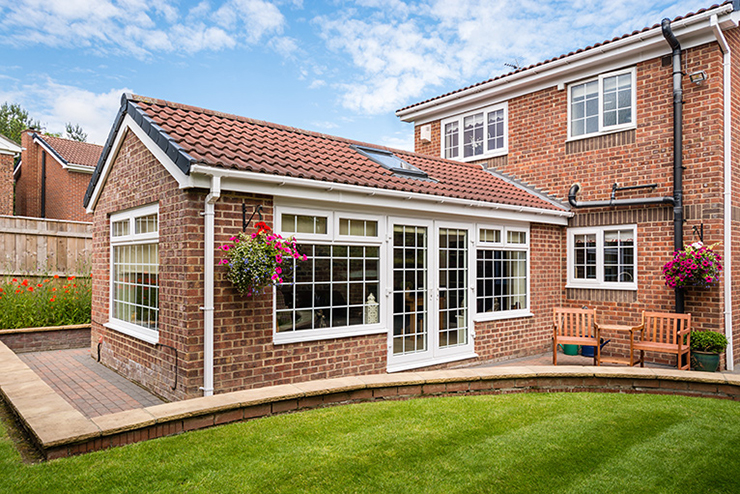
At the back of the property, rear extensions are built into garden areas and might be a good fit if your home lacks side space but you have a fairly big garden. They come as single or double-storey, but you could also get a first floor rear extension (on top of an existing single-storey extension), or even a rear extension in your basement.
Rear extensions tend to be the most easy to obtain planning permissions for, since they’re usually hidden from street view and don’t have an impact on the front face of your house.
The cost of a rear extension can range quite a bit:
- A small (15m2) brick rear extension with a flat roof, 3 metre bifold doors and one roof window will cost around £50,800
- A medium (24m2) brick rear extension with a flat roof, 3 metre bifold doors and one roof window will cost roughly £61,100
- A large (48m2) brick rear extension with a flat roof, 3 metre bifold doors and one roof window will cost you roughly £80,700
It will take roughly 14 weeks to complete a rear extension (between 12 and 16), depending on the size of your project.
Rear extension design ideas
Why not…
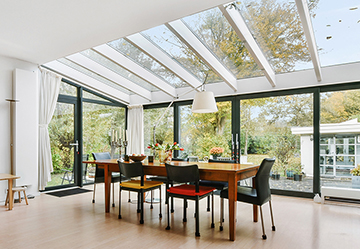
Turn your rear extension into a well lit, glass-wall dining room?
The perfect spot to host a dinner party under the stars, or to eat your breakfast in the sun.
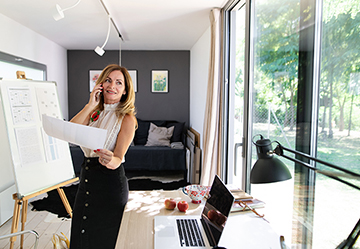
Make the most of that incredible natural light to build the perfect office to work from home?
Wrap-around extension cost
How much you spend on your wrap-around extension will depend on the size of your project. Smaller wrap-around extensions can cost as little as £63,000, whilst larger extensions of this kind can cost as much as £106,600. An average price for a medium-sized wrap-around house extension is of around £85,850.
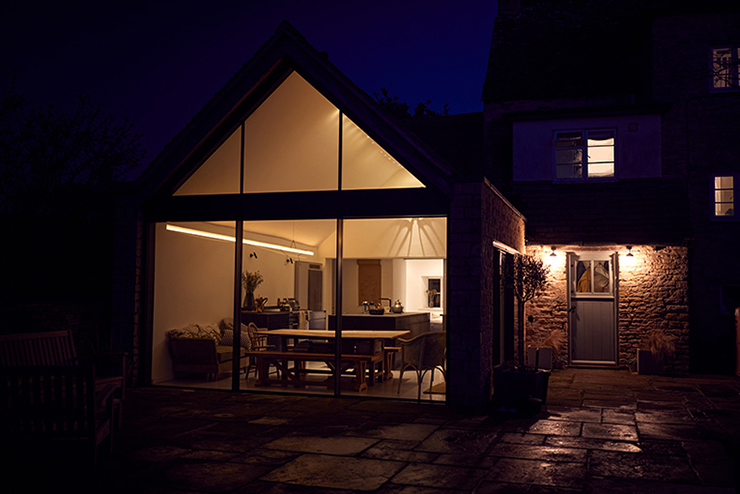
An L-Shaped extension (to the rear and side of your house), adds width and depth to your home. Wrap-around extensions are one of the largest types of extension you can have fitted in your home. By combining a rear and side extension, you truly maximise the amount of space you are adding.
Not only do they improve the natural light coming into your home (especially if you go for large, glass bifold doors), they also give you huge amounts of freedom when it comes to redesigning the layout of your home. Not to mention that they create really good connections with your garden and/or rear of your house.
To have one of these built, you will have to factor in roughly four months of building work, although this will depend on how complex the project is, and its size.
Cost of a wrap-around extension in 2023
A small wrap-around extension (20m2) could cost around £63,000
A medium wrap-around extension (40m2) could cost around £85,850
A large wrap-around extension (60m2) could cost around £106,600
How much you spend on your extension will depend on the specific requirements of your project. The above wrap-around extensions include:
- Demolition and preliminary work
- Brick extension with a flat roof
- 3 metre bifold doors
- One roof window
- Knock through to the main house
- Steel beams
- One 2m x 1m roof lantern
- All necessary plumbing, electrics, plastering, doors and windows, joinery, heating (radiators), drainage and painting and decorating
Keep in mind that you need additional planning permissions for this kind of extension, as it doesn’t come under Permitted Development (PD) regulations. It can take up to eight weeks to get your permit approved for an L-Shaped extension, so factor that into your project timings.
Wrap-around extension design ideas
Why not…
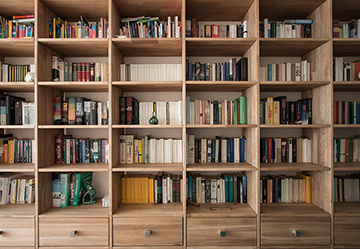
Turn the whole length of your L-Shaped extension into some beautiful wooden shelves to create a home library?
Or use it as storage, further maximising the space in your home.
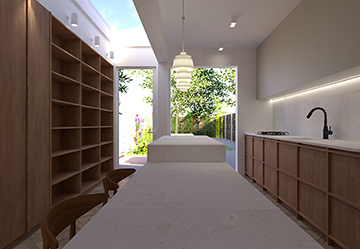
Take the opportunity to renovate your kitchen? You can add glass windows, a dining area, and a nice, open plan kitchen, all in the same, L-Shaped extension.
This will elevate the look and feel of your home, transforming it into a spacious, welcoming place.
Benchmark conservatory extension costs
On average, a new conservatory will cost you between £30,000 and £40,000.
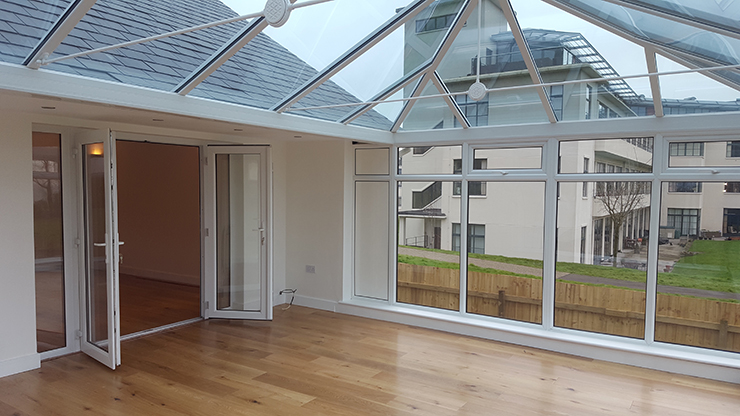
How much you pay for your conservatory depends on several factors, in particular the materials you use. However, if you are looking to add space to your home as cheaply as possible, a conservatory might be a good fit, since they’re a lot cheaper to build than home extensions.
Whether or not you go for a conservatory will depend on what you want to achieve with the extra space. Conservatories are less practical for bedrooms or bathrooms due to their glass walls and connection with the garden.
How much you’ll pay for a conservatory depends on:
- How big it is
- Its design
- Your choice of materials
- If you want it fully glazed, or with a dwarf wall
A conservatory can take anywhere between two and five weeks to build.
These prices reflect the cost of materials, installation fees, and also include VAT.
| Conservatory type | Average price |
| Lean-to | £30,500 – £32,000 |
| Victorian | £34,000 – £35,000 |
| Edwardian | £33,000 – £34,000 |
| Gable-end | £32,000 – £33,000 |
| T-shaped | £35,000 – £39,000 |
| L-shaped | £34,000 – £38,000 |
| P-shaped | £35,000 – £39,000 |
| Orangery | £50,000 – £55,000 |
For more information on getting a conservatory built, check out our conservatory cost guide.
There are lots of different kinds of conservatories, with different shapes and sizes accounting for a range of prices. You will probably end up paying at least £30,000 for a new conservatory, whilst orangeries start at around £50,000 and can reach £80,000 or even more for high-end, luxury installations.

As with all these ranges, our prices are a ballpark average – get a local tradesperson to give you a free quote for your project, today.
Conservatory design ideas
Why not…

Turn your conservatory into a cosy cinema room?
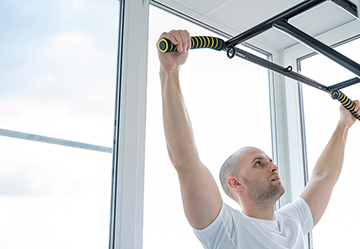
Or, you could turn your conservatory into a well-lit, home gym.
How much does a garden room cost?
A garden room is a very popular and in-demand type of extension. It’s a great way to add more room to your house, and often for a relatively cheap price. On average, you might spend between £8,000 and £27,500 on a new garden room.
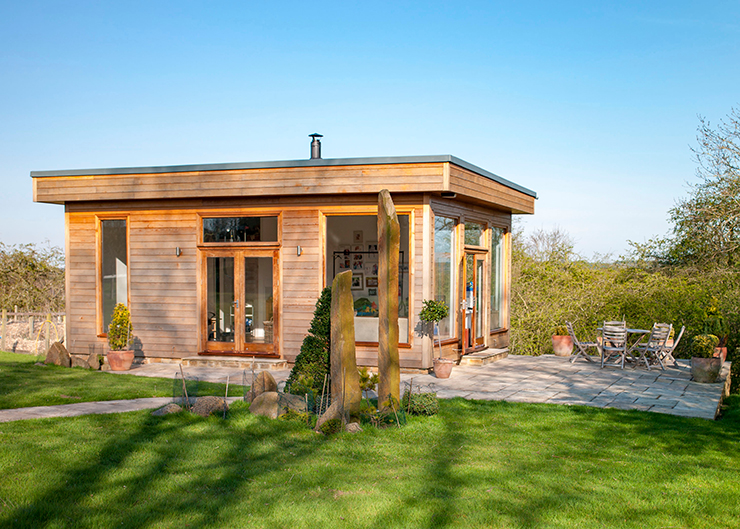
Garden rooms are a great way to add space to your home, quickly and relatively cheaply.
Whether you want a play area for your children, or are looking for a new home office now that you’re working remotely, a garden room could be the perfect solution.
At the lower end, with as little as £8,000 you could have a small wooden cabin installed, though raise that price if you want to add things like additional windows and insulated panels to your stand alone building. When you then factor in electricity and foundations, a small garden room can reach the rough cost of £15,000.
If, however, you want a bespoke garden room, then costs tend to range upwards of £27,500, though there isn’t a real upper limit, as it all depends on how much you want to spend.
The things that can bring up costs for your garden room are:
- Insulation, which will cost you around £1,000 (but will depend on the size of the room)
- Electrics, which cost roughly £800 – £1,000 to have installed
- How many windows and doors you want
- Whether you need to connect plumbing, such as for a kitchen or washing facilities
- Interior decor, such as flooring, paint for the walls and lights
The good news is that, in most cases, garden rooms are usually covered by permitted development rights, meaning you won’t need to get planning permission to install one.
How long it takes to build depends on what exactly you’re getting. The most basic garden sheds can be built in a day, whereas more elaborate projects can take up to a month, or longer.
Garden room design ideas
Why not…

Turn your garden room into a play area for children?
A play area would allow children to get creative in a space dedicated entirely to them.

Turn your garden room into a workshop, for all your DIY and home improvement projects?
How much does a dormer window extension cost?
The average cost to have a dormer window installed is roughly £900, with an upper and lower range of £600 and £1,200. This range includes the cost of materials, labour, and the scaffolding that will be required to complete the job.
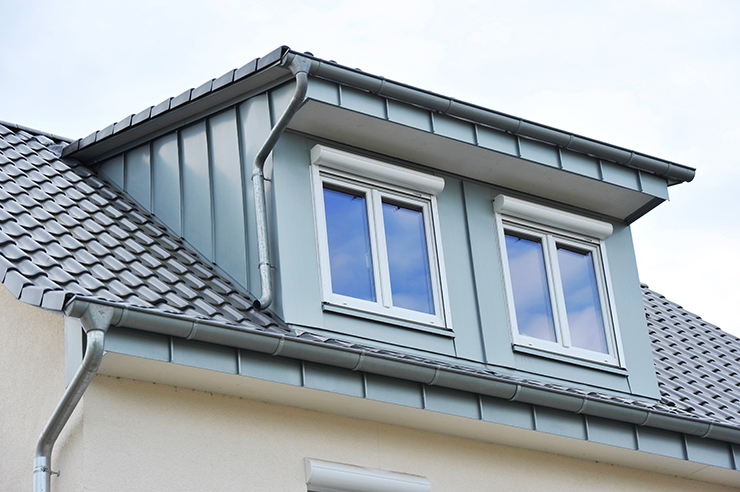
These types of windows are particularly well suited for lofts and converted attics, adding light and ventilation to your room. They’re also an elegant design feature that can elevate the appearance of your house.
Your dormer window will take roughly four to six weeks to build, but individual projects can range quite widely.
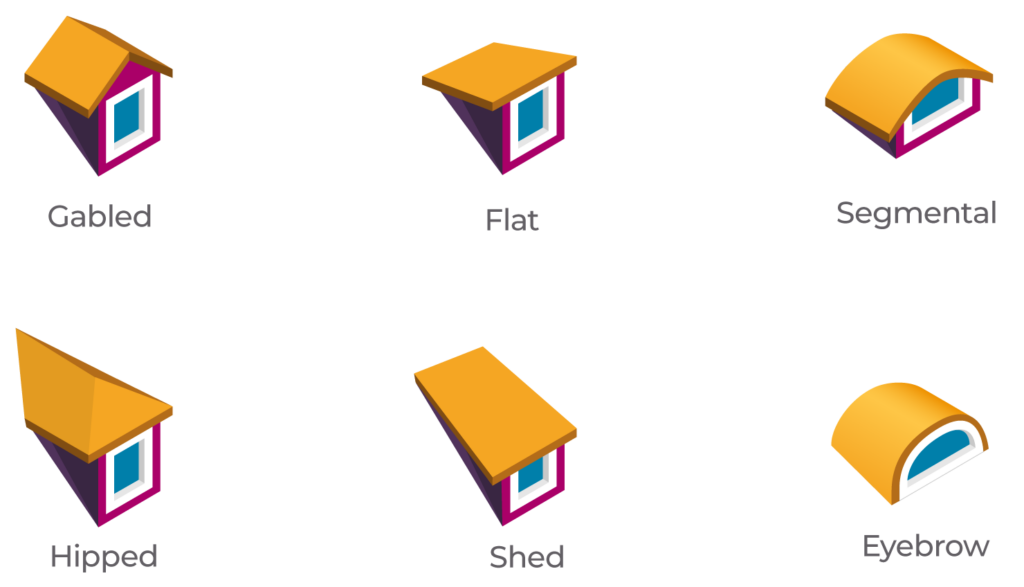
Prefab extension cost
A prefab extension, also known as a flat pack home or modular extension, usually costs between £45,000 and £55,000, and comes fully fitted with everything you need to enjoy your new home addition. An average, medium sized prefab can cost you around £50,000 to buy and install.
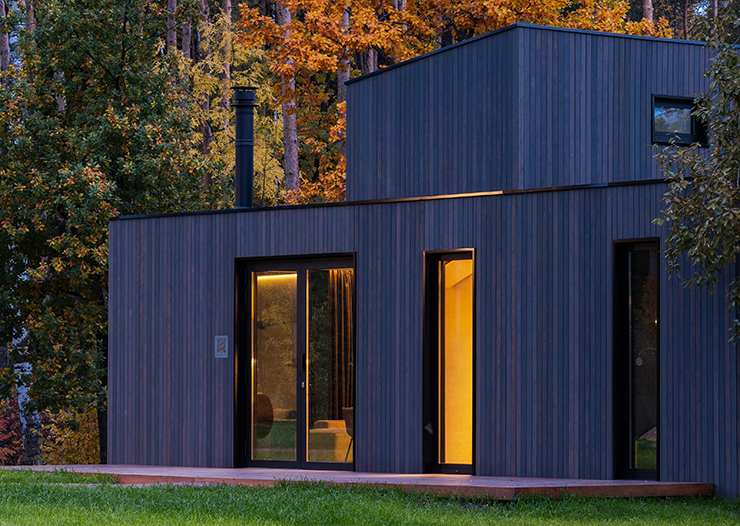
You might want to look into prefabricated extension builds.
These are built offsite, ready to be delivered and installed. They’re usually made of wood or steel frames, and are a good way of keeping costs under control.
They’re also mess-free, as they’re built off-site and then put together at your house.
How much getting a prefab costs:
| Size of the structure | Quality of the structure | Average cost to install |
| Small | Low-end | £28,000 |
| Small | Average | £32,000 |
| Small | Luxury | £35,000+ |
| Medium | Low-end | £45,000 |
| Medium | Average | £50,000 |
| Medium | Luxury | £55,000+ |
| Large | Low-end | £60,000 |
| Large | Average | £68,000 |
| Large | Luxury | £78,000+ |
The great thing about modular extensions is that they’re often environmentally-friendly, due to the materials sourced to make them and their relative low-waste. They’re also usually quite well insulated, and can save you up to 25% more than a normal extension would.
Plus, they take just under eight days to build!
Close section ↑Cost to add a basement extension
The cost of a basement extension in 2023 is around £145,000, with a lower price range of around £120,000 and an upper range starting at £160,000.
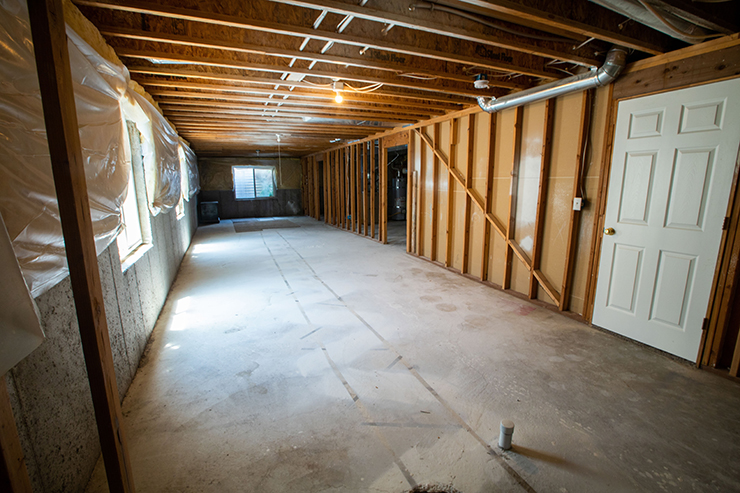
A basement extension can truly maximise your space. They’re particularly recommended for homes in restricted, dense areas, where a side or rear extension wouldn’t be possible.
As a result, they’re popular in homes where above-ground space has already been maximised.
Basement extensions require a lot of groundwork, reorganising plumbing, and creating watertight shells. All of these are specialised tasks, so DIY isn’t advised.
A basement of around 40 square metres might cost you around £130,000, though this ranges from £100,000 to £160,000 and beyond.
How much you spend will depend on where you are getting your basement extension built, and the specific requirements of your project. For example, a new basement space under your house will cost you more than digging a new space underneath a garden. If, on the other hand, you are simply looking to convert an existing cellar, then prices will be lower.
They can take anywhere between 12 and 20 weeks to complete.
Basement extension design ideas
Why not…
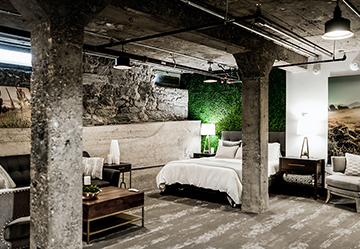
Turn your basement extension into a large bedroom with an ensuite bathroom?
It could increase the value of your property considerably.

Or revolutionise your downstairs space by turning your basement into a home bar and games room.
Home bars are a popular home renovation project.
Additional costs
You may have to budget for some other costs to your home extension that were not covered in the above prices, and which vary, depending on the scope and specifics of your project.
These can include:
Cost of hiring a skip
Skips are used to collect and dispose of the rubbish and excess materials that form when building work takes place. Sometimes, a skip will be included in your extension quote, as they are in the above quotes, but if yours aren’t, you might have to pay around £250 for every 6 yard skip needed to complete your extension. How many skips you’ll need will depend on the scope of your project. For example, to build a 20m2 wrap-around extension you’ll need around 3 6 yard skips.
What does it cost to get a site survey?
It’s a very good idea to get a site survey done on your property before you begin work. This is because a surveyor will help you identify problems that could come up during the project, or any issues that stand out immediately. A survey will cost you between £600 and £1,400, depending on the size of your home. They’re useful because they can save you money down the line.
Cost of underfloor heating
Underfloor heating can be a great addition, especially in places like glass conservatories that don’t retain heat well. It’s easier and cheaper to install while the extension is being built, rather than retrofitting it later.
The price to have underfloor heating installed will depend on the size of the area being covered, and the type of underfloor heating you choose.
On average, installing underfloor heating costs between £1,200 and £5,000, depending on the type of underfloor heating you want installed, and the size of the floor you want fitted. You can choose between electric underfloor heating and wet underfloor heating.
Additional costs for a home extension

Cost of hiring an architect
You may feel more confident embarking on your extension project if you’ve shared your ideas with a professional who is equipped to help you make the most of your space. You don’t necessarily need one, especially not for simple extensions like a single-storey build, but whether or not you hire one is up to you. You will be charged around 10-15% of the cost of the extension for a plan. On average, the bill for this service might end up costing you between £700 and £1,200.
Planning application fee
According to Planning Portal, the service that deals with all online planning applications, the cost to apply for planning permission is £206 plus a £32.20 service charge. This totals to £238.20.
Party wall agreements
In some cases, the building of your extension might affect a neighbour’s wall or boundary. If this is the case, then your surveyor will need to serve your neighbour with a Party Wall Notice. This will cost you between £65 – £100.
You will then need to wait for your neighbours to give their written consent. If, within 14 days, they fail to do this, then there will be additional costs, as you will need to have a Party Wall Agreement arranged by a party wall surveyor. They charge between £80 and £300 an hour.
Post construction cleaning specialist
If it isn’t included in your quote, then you might need to hire a post construction cleaning specialist, or team, to come and clean your extension before you can start using it. They can also clear around the site, depending on what you need.
Prices range widely, and will depend entirely on how much cleaning you need done to your extension. Bigger projects can require multiple cleaners and can cost upwards of £70 an hour, whilst other, easier cleans can cost £20 an hour.
If you think you need a post construction cleaner, then tell us about your project, and get a free quote now.
Building regulation costs
You will need to make sure that your extension project meets building regulations, as you cannot proceed without the appropriate certification. This includes ensuring the house is safe for habitation and also following all legal requirements. This takes place before building works begin.
Two additional services you might want to pay for are the cost of a structural engineer, which ranges from £1,200 and £3,000 and a CCTV surveyor, around £250 – £500. The former will plan out the calculations for the foundations of your extension, the latter uses CCTV to examine the condition of your drainage systems to ensure there aren’t any blockages or other problems.
You may not end up needing all of these things, but regulations are an important part of your home extension cost, so you should budget for them accordingly. Prices will of course vary widely, depending on how complex your project is, and where you live.
The best thing you can do is request a handful of quotes, to get a better sense of what a home extension might cost you.
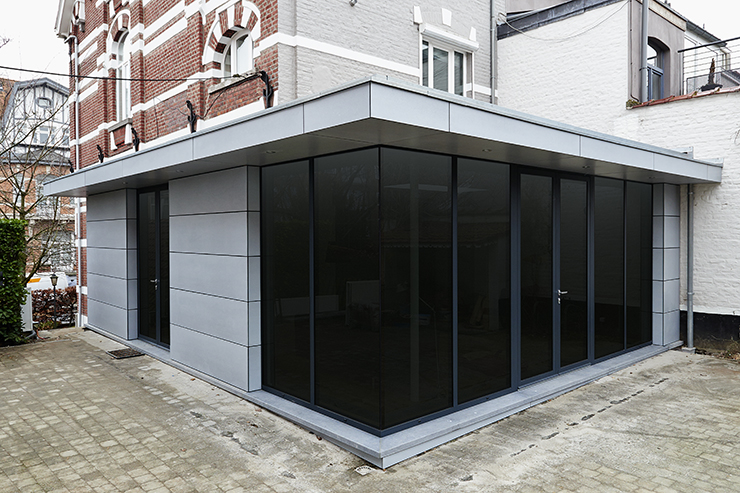
Do I need planning permissions for my home extension?
Not all extensions need planning permission. This depends on whether or not your project falls under permitted development (PD) rights. If it does, this will save you time and money waiting and paying for an application.
The parameters you need to meet to avoid a planning permission application are:
- Your extension, including previous additions and other buildings, can’t be bigger than 50% of the total land area around the original house
- 3m for terraces and semi-detached homes and 4m for detached houses is the maximum a single-storey rear addition is allowed to extend beyond the rear of the original house
- You can’t extend forward of the main elevation (or the side elevation if it fronts the highway)
- If you want to build an extension within 2m of a boundary, its maximum eaves height can’t be more than 3m
- Side extensions have to be single-storey, and cannot exceed the maximum height of 4m. They must also be no greater than half the width of the original house
- You have to use materials that are similar in appearance to the existing house (excluding conservatories) for all external materials
- Windows on upper floors of side elevations have to be non-opening and obscure-glazed, unless the opening part is at least 1.7m above floor level
- Multi-storey additions can’t extend beyond the rear wall of the original house by more than 3m, or be within 7m of a boundary opposite the rear wall. They must also have a max eaves and ridge height that isn’t taller than the existing house, with a matching roof pitch
- Designated areas and/or listed buildings can result in PD rights not applying
For more information, read the permitted development rights for householders.
Close section ↑How can I save money on my house extension?
There are several tips and tricks you can employ to save you some cash without necessarily compromising on quality.
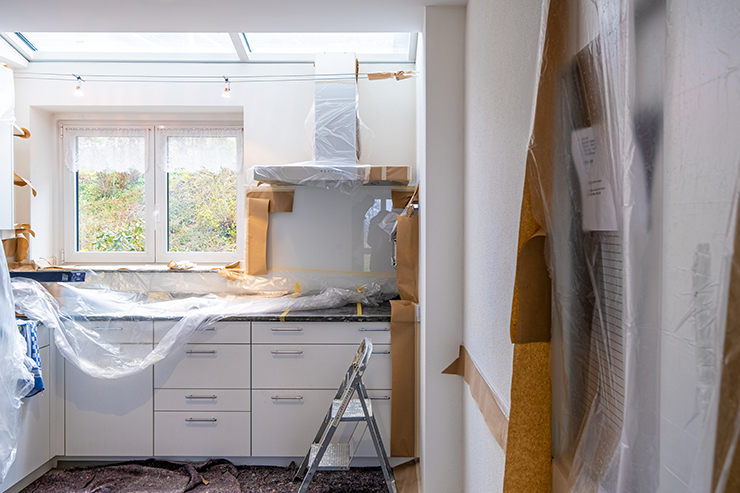
Ten tips to to save money on your extension:
- Ask for multiple contractor quotes. Usually, three to five is a recommended number. This will help you get a sense of what the market looks like and the price range for your project. Knowing how cheap your project could be (as well as how expensive) is good knowledge to have and will help you get the right person for a fair quote.
- Remember that if a quote looks too good to be true, then it probably is. Always check what is included in the price packet, and remember to consider additional costs and prices that might not have been factored into the original quote.
- Avoid some things at all costs. For instance, moving load-bearing walls. This will incur significant additional costs, as will most big changes to the floorplan of your house.
- Stick to the original design plan. When you start adding bits and bobs and additional elements mid-way through the project, costs start to rise and can get out of hand. To keep everything under control, make a plan and then stick to it.
- Re-use materials. There is no reason why excess materials should go to waste if you paid for them. You could keep materials for your next extension, or turn them into DIY projects to save you money later on.
- Don’t cut corners when paying for tradespeople. It might seem like a big upfront cost paying for reputable professionals, but in the long run, it will save you money on repairs or corrections that are likely to happen with cheaper hires.
- Don’t part with more than 25% of the total project cost upfront. You will have to put down a deposit, but steer clear of paying large sums right at the beginning, especially if the project is due to take several months to complete.
- Invest in long-term elements like structural alterations. You can then save money on things you can change more easily later on like paint supplies.
- Don’t underestimate what a professional designer can do for you. The right designer can help you decide where you should spend your money, whilst helping you make cheaper items look aesthetic.
- Avoid bespoke. When you’re having windows and doors fitted, stick with standard sizing to avoid having to buy more expensive, tailored materials down the line.
All these things can help you keep costs under control.
Close section ↑Conclusions
In recent years, both builders and their materials have gone up in price, affecting the overall cost of getting an extension.
Yet, an extension can also add significant value to your property. An extra bedroom, loft conversions, bigger kitchens, an additional bathroom, and bigger living spaces are all extension projects that could significantly increase the value of your home.
They can also make your living spaces a lot more pleasant to live in, especially if your house feels a bit cramped as it currently is. A home extension is an investment that may well pay you back, if and when you eventually sell your property.
*The Rated People cost guides are produced in collaboration with the quote-building platform PriceBuilder, and a range of tradespeople across the 30+ trades on our platform were consulted. Please note that the prices included are for guidance only – how much you end up spending will depend on the specific requirements of your project.




